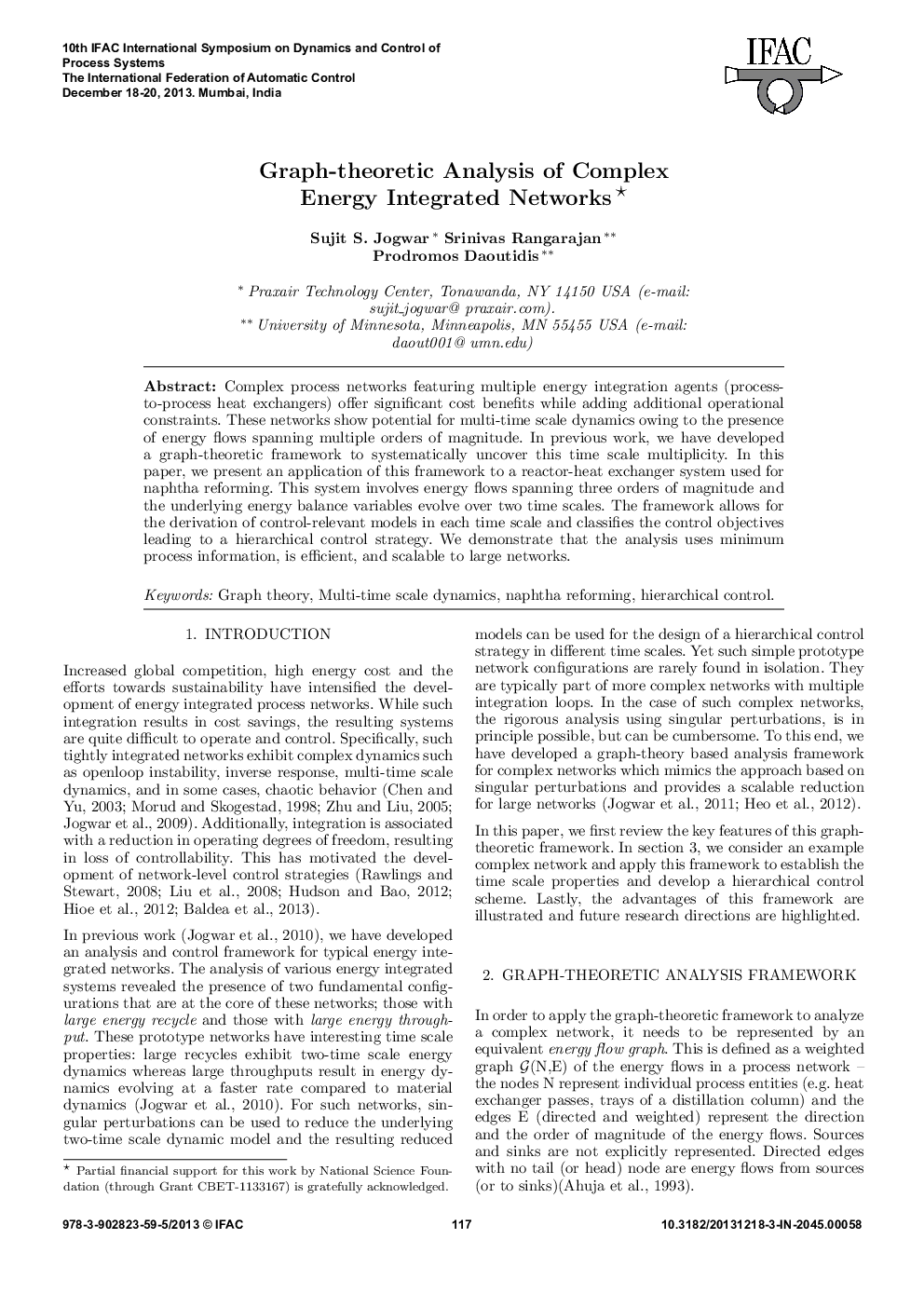| Article ID | Journal | Published Year | Pages | File Type |
|---|---|---|---|---|
| 713648 | IFAC Proceedings Volumes | 2013 | 6 Pages |
Complex process networks featuring multiple energy integration agents (process-to-process heat exchangers) offer significant cost benefits while adding additional operational constraints. These networks show potential for multi-time scale dynamics owing to the presence of energy flows spanning multiple orders of magnitude. In previous work, we have developed a graph-theoretic framework to systematically uncover this time scale multiplicity. In this paper, we present an application of this framework to a reactor-heat exchanger system used for naphtha reforming. This system involves energy flows spanning three orders of magnitude and the underlying energy balance variables evolve over two time scales. The framework allows for the derivation of control-relevant models in each time scale and classifies the control objectives leading to a hierarchical control strategy. We demonstrate that the analysis uses minimum process information, is efficient, and scalable to large networks.
